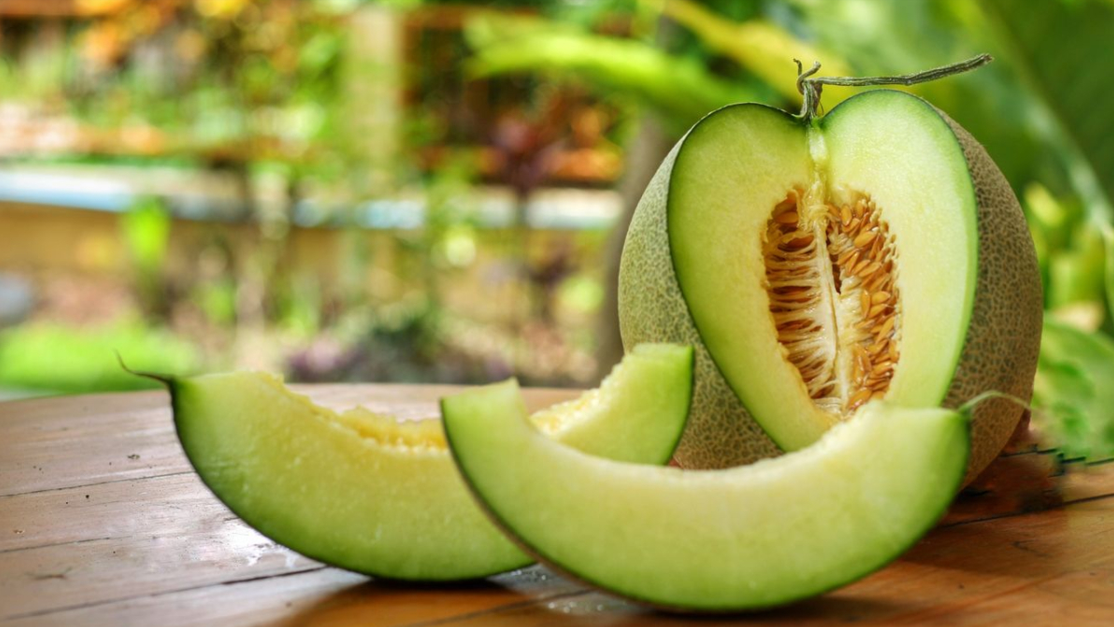Melon is a widely consumed fruit that belongs to the Cucurbitaceae family. Known for its refreshing taste and high water content, melons come in various varieties, such as watermelon, cantaloupe, honeydew, and Galia. Not only is melon delicious, but it is also a powerhouse of nutrients, offering several health benefits.
Health Benefits of Melon
- Hydration:
Melons are made up of over 90% water, making them one of the best fruits
for staying hydrated. Proper hydration is essential for maintaining
healthy skin, improving digestion, and supporting overall bodily
functions.
- Rich
in Nutrients: Melons are packed with essential vitamins and minerals.
They are particularly rich in vitamin C, which supports the immune system,
promotes healthy skin, and protects against free radicals. Additionally,
melons contain significant amounts of potassium, which is vital for heart
health, muscle function, and regulating blood pressure.
- Antioxidant
Properties: Melons, especially cantaloupe, are high in beta-carotene,
an antioxidant that helps reduce the risk of chronic diseases and supports
eye health. Vitamin C, found abundantly in melons, also acts as a powerful
antioxidant that aids in collagen production and prevents premature aging.
- Promotes
Digestive Health: Melons are an excellent source of fiber, which
supports a healthy digestive system. The water content, combined with
fiber, can help prevent constipation and promote regular bowel movements.
- Weight
Management: Due to their low calorie and high water content, melons
make for an excellent snack for those looking to manage their weight. They
provide a sense of fullness and hydration, without adding excess calories
to the diet.
- Anti-inflammatory
Effects: Certain compounds found in melons, such as cucurbitacin E,
possess anti-inflammatory properties that can reduce inflammation and
provide relief from conditions like arthritis.
Where is Melon Grown?
Melons thrive in warm, temperate climates. They are
typically grown in regions with long, hot summers and require well-drained
soil. The cultivation of melons is widespread, and they are grown in many parts
of the world, particularly in Asia, Africa, the Americas, and parts of Europe.
Regions of Melon Abundance
Melon is most abundant in regions with the ideal growing
conditions—especially in the southern United States, China, and Central Asia.
The United States, China, and India are some of the largest producers of
melons, with the U.S. particularly known for its vast watermelon production,
especially in states like Texas and Florida.
In Europe, Spain, Italy, and Greece are notable for their
melon production, while in Africa, countries such as Egypt and Morocco are
significant melon growers. Furthermore, Central and South America are key
producers, with countries like Mexico and Brazil growing various melon
varieties.
Origin of Melon
The origin of melon can be traced back to Africa,
particularly in regions around the Nile River, where early cultivation began
around 2000 BCE. It is believed that melon spread from Africa to other parts of
the world, including Europe and Asia, through trade and exploration. Over time,
different varieties of melon were developed, adapting to different climates and
tastes.
Watermelon, in particular, is believed to have originated in
southern Africa, while cantaloupe and honeydew have roots in Central Asia and
the Middle East. Through human migration, the fruit gradually made its way
across the globe.
Conclusion
Melon is not only a delicious and refreshing fruit, but it
also provides numerous health benefits. From boosting hydration and providing
essential vitamins and minerals to supporting digestive health and reducing
inflammation, melon is an excellent addition to a balanced diet. Grown in
diverse regions, melons are abundant in warm climates and are a staple in many
countries. Whether enjoyed fresh, in a salad, or as a smoothie, melon offers a
tasty and nutritious way to enhance your overall health.
Sources:
- U.S.
Department of Agriculture (USDA), "Nutrient Database."
- World
Health Organization (WHO), "Nutrition and Health."
- Encyclopedia
of Life Sciences, "Cucurbitaceae: Melons, Cantaloupe,
Watermelon."






